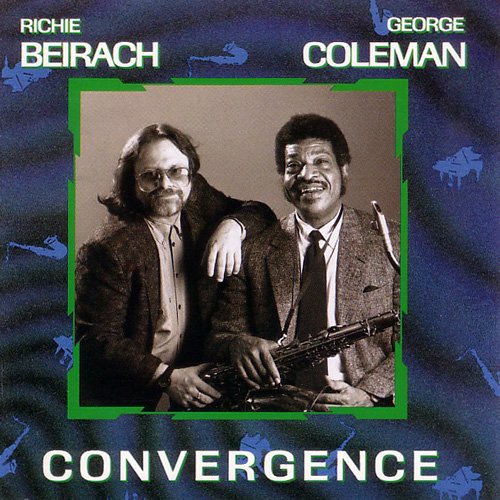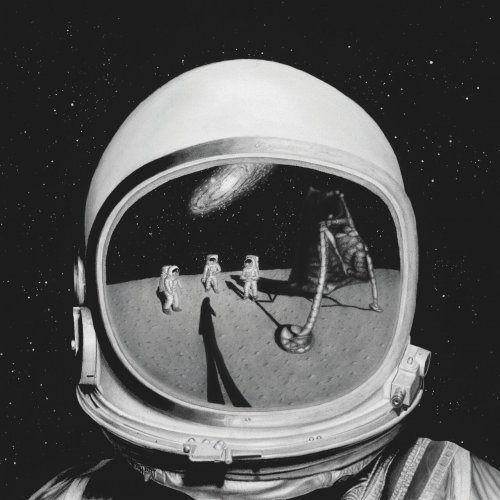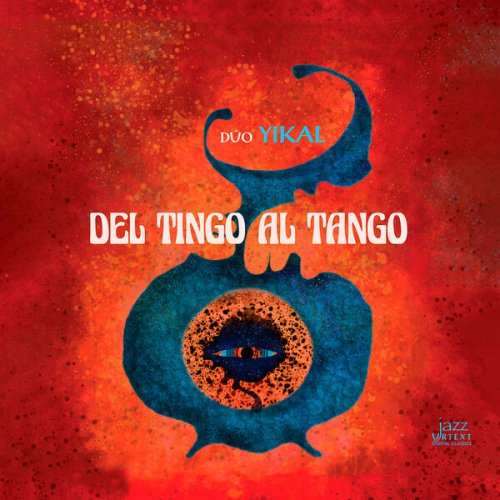VA - Tuonen Tytar - A Tribute To Finnish Progressive (2000)
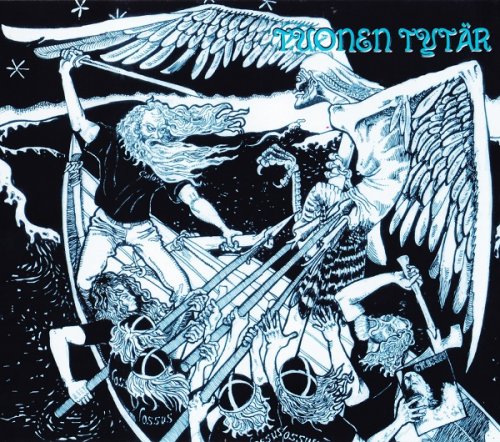
Artist: VA
Title: Tuonen Tytar - A Tribute To Finnish Progressive
Year Of Release: 2000
Label: Mellow Records
Genre: Prog Rock
Quality: WavPack (image+.cue,log,scans)
Total Time: 2:10:55
Total Size: 1,2 Gb
WebSite: Album Preview
Title: Tuonen Tytar - A Tribute To Finnish Progressive
Year Of Release: 2000
Label: Mellow Records
Genre: Prog Rock
Quality: WavPack (image+.cue,log,scans)
Total Time: 2:10:55
Total Size: 1,2 Gb
WebSite: Album Preview
The knowledge of Finnish progressive bands of the 70’s is often restricted to only Wigwam and Tasavallan Presidentti but there were many other less-known bands making interesting music in Finland at that time. As a proof of the existence of Finnish progressive bands in the 70’s we now can listen to this tribute CD kindly published by Mellow Records in cooperation with COLOSSUS, the Finnish Association for Progressive Rock.
The history of the Finnish progressive bands can be said to begin with a band called Blues Section who released one LP in the 60's, and later also two collections were released. The music on these LPs was completely different from the music the band played live. Blues Section used long experimental improvisations in their concerts mixing some jazz and blues to make a sound of their own. Grounding members of Blues Section were Mans Groundstroem (later Tasavallan Presidentti and also Wigwam) and Hasse Walli (later Piirpauke). Jim Pembroke (later Wigwam) came back from England and joined the band as a singer and Ronnie Osterberg (later Wigwam) was the drummer of the band. In the beginning of ’68 Jim Pembroke left the band and Frank Robson (later Tasavallan Presidentti) took over as a singer but the band split in summer ’68.
After some time two of the most important Finnish progressive rock bands, Wigwam and Tasavallan Presidentti, were formed from the ashes of Blues Section. Mans Groundstroem and Frank Robson went to a group called Balloon that had a young phenomenal guitarist Jukka Tolonen. Some time later the band changed its name to Tasavallan Presidentti, and one of the legends of Finnish prog had been born. The first album of Tasavallan Presidentti was released in ’69 on Love Records. The band played quite a lot live and they also appeared at the first Ruisrock in '70 The band roused some interest abroad and got a deal with EMI in Sweden where they recorded their second album also called “Tasavallan Presidentti" (1971). The marketing of the album was very poor and it did not sell much even in Finland. After that Tasavallan Presidentti recorded two more albums, “Lambert Land” (1972) and “Milky Way Moses” (1974) before breaking up in 1974. After Tasavallan Presidentti Jukka Tolonen continued his solo career that already had begun in ’71 when he released his first solo album “Tolonen!”. On this tribute we have three songs of Tasavallan Presidentti, all from different albums. In addition to this, there is also one song from Jukka Tolonen’s album “Hysterica”.
The beginning of Wigwam can be dated back to late ’68 when drummer Ronnie Osterberg, together with guitarist Vladimir ‘Nikke’ Nikamo and bassist Mats Hulden started to play together as a backing band to some Finnish singer. In the beginning of ’69 they asked Jim Pembroke to join them as a singer and started to play their own music. In spring '69, the first single of Wigwam was released, and soon after that Jukka Gustavson joined the band as a keyboard player and singer. Wigwam started to make their first album and “Hard'n Horny" was released in November '69. The first 400 copies of the album had hand-made covers made by the members of the band. In April '70 Hulden left the band and Pekka Pohjola joined on bass. The band started to make their second album “Tombstone Valentine” (1970) but Nikamo left the band because he did not like how the producer of the album, Kim Fowley, handled the recording. After that Wigwam released two albums, “Fairyport" (1971) and "Being" (1974) but conflicts between the members of the band started to make the life of the band difficult. They even tned to add a guitarist, Pekka 'Rekku' Reckhard, to the band but it didn't help, and so in June '74 Gustavson and Pohjola left the band. The band recorded their last concerts, and a double-LP “Live Music From The Twilight Zone” was released in '75. Pembroke and Osterberg asked Reckhard and Mans Groundstroem to join the band, and in August '74 the new Wigwam was already playing live. The new Wigwam had a different sound compared to the time when Gustavson and Pohjola were playing in it but still the success of the band was growing steadily and they recorded three more albums before breaking up in 1977. Of these later Wigwam albums “Nuclear Nightclub” (1975) was the most successful of all Wigwam albums but “Lucky Golden Stripes and Starpose'' (1976) and “Dark Album” (1977) did not sell as much. Of the five Wigwam songs on this tribute only one is from the earlier version of Wigwam and the rest are from their later periods. After Wigwam Pekka Pohjola created a very successful solo-career that had already started with the release of “Pihkasilma kaamakorva” in '72. Pekka Pohjola has been releasing many excellent recordings of which four songs are presented on this tribute.
Tasavallan Presidentti and Wigwam were surely the best-known Finnish progressive bands internationally but there were many other good progressive bands in Finland during the 70's. Only to name a few we had bands like Tabula Rasa, Finnforest, Haikara, Kaamos, Nimbus, Nova, Scapa Flow, Mandala, Ferris, Fantasia, Farout, The Group, Jig-Saw, Jupu Group, Session and Susivatkain Charlies, Elonkorjuu and Kalevala played more “heavy” progressive and Piirpauke and Karelia mixed folk-music with jazz and rock.
Haikara was bom in Lahti in 1971 when Vesa Lattunen (ex-Tinkle) met Markus Heikkero who had made a name for himself as a surrealistic painter. They got together with the singer of Charlies, Wellu Lehtinen and started to make their own music. Lattunen and Ham Pystynen (saxophones and flute) were also playing in the Lahti Symphony Orchestra, and also Heikkero had studied percussion in Kuopio. The classical background of some of the members of Haikara can be easily heard on their two best LPs “Haikara” (1972) and “Geafar” (1973). As a surprise - and a self-explanatory opening track - for this tribute album the recently reformed Haikara under the leadership of Vesa Lattunen re-recorded the song “Yksi maa, yksi kansa” from their first album As a proof of the talent of Haikara, also another song of the band is included here as Circle from Pori plays an interesting version of the song “Kun menet tarpeeksi kauas tulevaisuuteen, huomaat olevasi menneisyydessa“ from the LP "Geafar”. Haikara recorded their third album “Iso lintu" in '75 but the sound of the band had changed to a more commercial direction.
Finnforest was a project of twin brothers Pekka and Jukka Tegelman. In "73 the band entered a contest for rock bands and they won the second place The first album of Finnforest is well-played instrumental progressive rock as can be heard by a new version of the opening track "Mika yo” of the album "Finnforest” (1975) played on this tribute by the Latvian band Holy Lamb. The second album of Finnforest “Lahto matkalle” (1976) was more in the realms of instrumental fusion and the third album “Demonnights" (1979) went further to the jazzy realms.
Piirpauke was formed in 1974 by Sakari Kukko and Antti Hytti. Some time later also Hasse Walli (ex-Blues Section) joined the band as a guitarist. On their first LP “Piirpauke” (1975) the band cleverly mixed folk-elements to jazz and rock. The most popular track on the album was a song called “Konevitsan kirkonkellof” which on this tribute is played by a new Finnish band Overhead. From their second LP “Piirpauke 2” we hear the song “Imala Maika”. Piirpauke went on to make many interesting albums developing their special kind of folk-music into new dimensions.
Tabula Rasa - sadly not presented on this tribute - was one of the most interesting Finnish progressive bands in the 70’s. Tabula Rasa played melodic progressive with a heavy dose of flute and they made two albums “Tabula Rasa” (1975) and “Ekkedien tanssi” (1976).
In the beginning of the 90's there were little activity concerning progressive rock in Finland. Ageness released their first album in 1992, and also some other bands were interested in playing progressive rock but it was only after COLOSSUS was founded in 1995 that the activity around progressive rock began to grow in Finland. COLOSSUS gathered together progressive rock fans and musicians playing this kind of music in Finland and started to publish COLOSSUS Magazine that has steadily grown to the over 100 pages that it is today. COLOSSUS organised a couple of progressive rock concerts every year, and especially tribute concerts have had quite large audiences. Also some foreign progressive bands have played in Finland, for example Twin Age, Anekdoten, Morte Macabre, Par Lindh Project and Grand Stand from Sweden, Cast from Mexico, Holy Lamb from Latvia and After Crying from Hungary.
The membership of COLOSSUS has steadily grown which is a sure indication that there is a market for progressive rock in Finland. We hope that this tribute album of Finnish progressive rock will offer pleasurable listening moments for both those that were able to witness the original performances in the 70’s and also to younger people who are only starting to find the good sounds outside the more commercial music.
Raimo Eurasto, COLOSSUS Magazine.
Kalevi, Marco, Raimo. www.colossus.fi
The history of the Finnish progressive bands can be said to begin with a band called Blues Section who released one LP in the 60's, and later also two collections were released. The music on these LPs was completely different from the music the band played live. Blues Section used long experimental improvisations in their concerts mixing some jazz and blues to make a sound of their own. Grounding members of Blues Section were Mans Groundstroem (later Tasavallan Presidentti and also Wigwam) and Hasse Walli (later Piirpauke). Jim Pembroke (later Wigwam) came back from England and joined the band as a singer and Ronnie Osterberg (later Wigwam) was the drummer of the band. In the beginning of ’68 Jim Pembroke left the band and Frank Robson (later Tasavallan Presidentti) took over as a singer but the band split in summer ’68.
After some time two of the most important Finnish progressive rock bands, Wigwam and Tasavallan Presidentti, were formed from the ashes of Blues Section. Mans Groundstroem and Frank Robson went to a group called Balloon that had a young phenomenal guitarist Jukka Tolonen. Some time later the band changed its name to Tasavallan Presidentti, and one of the legends of Finnish prog had been born. The first album of Tasavallan Presidentti was released in ’69 on Love Records. The band played quite a lot live and they also appeared at the first Ruisrock in '70 The band roused some interest abroad and got a deal with EMI in Sweden where they recorded their second album also called “Tasavallan Presidentti" (1971). The marketing of the album was very poor and it did not sell much even in Finland. After that Tasavallan Presidentti recorded two more albums, “Lambert Land” (1972) and “Milky Way Moses” (1974) before breaking up in 1974. After Tasavallan Presidentti Jukka Tolonen continued his solo career that already had begun in ’71 when he released his first solo album “Tolonen!”. On this tribute we have three songs of Tasavallan Presidentti, all from different albums. In addition to this, there is also one song from Jukka Tolonen’s album “Hysterica”.
The beginning of Wigwam can be dated back to late ’68 when drummer Ronnie Osterberg, together with guitarist Vladimir ‘Nikke’ Nikamo and bassist Mats Hulden started to play together as a backing band to some Finnish singer. In the beginning of ’69 they asked Jim Pembroke to join them as a singer and started to play their own music. In spring '69, the first single of Wigwam was released, and soon after that Jukka Gustavson joined the band as a keyboard player and singer. Wigwam started to make their first album and “Hard'n Horny" was released in November '69. The first 400 copies of the album had hand-made covers made by the members of the band. In April '70 Hulden left the band and Pekka Pohjola joined on bass. The band started to make their second album “Tombstone Valentine” (1970) but Nikamo left the band because he did not like how the producer of the album, Kim Fowley, handled the recording. After that Wigwam released two albums, “Fairyport" (1971) and "Being" (1974) but conflicts between the members of the band started to make the life of the band difficult. They even tned to add a guitarist, Pekka 'Rekku' Reckhard, to the band but it didn't help, and so in June '74 Gustavson and Pohjola left the band. The band recorded their last concerts, and a double-LP “Live Music From The Twilight Zone” was released in '75. Pembroke and Osterberg asked Reckhard and Mans Groundstroem to join the band, and in August '74 the new Wigwam was already playing live. The new Wigwam had a different sound compared to the time when Gustavson and Pohjola were playing in it but still the success of the band was growing steadily and they recorded three more albums before breaking up in 1977. Of these later Wigwam albums “Nuclear Nightclub” (1975) was the most successful of all Wigwam albums but “Lucky Golden Stripes and Starpose'' (1976) and “Dark Album” (1977) did not sell as much. Of the five Wigwam songs on this tribute only one is from the earlier version of Wigwam and the rest are from their later periods. After Wigwam Pekka Pohjola created a very successful solo-career that had already started with the release of “Pihkasilma kaamakorva” in '72. Pekka Pohjola has been releasing many excellent recordings of which four songs are presented on this tribute.
Tasavallan Presidentti and Wigwam were surely the best-known Finnish progressive bands internationally but there were many other good progressive bands in Finland during the 70's. Only to name a few we had bands like Tabula Rasa, Finnforest, Haikara, Kaamos, Nimbus, Nova, Scapa Flow, Mandala, Ferris, Fantasia, Farout, The Group, Jig-Saw, Jupu Group, Session and Susivatkain Charlies, Elonkorjuu and Kalevala played more “heavy” progressive and Piirpauke and Karelia mixed folk-music with jazz and rock.
Haikara was bom in Lahti in 1971 when Vesa Lattunen (ex-Tinkle) met Markus Heikkero who had made a name for himself as a surrealistic painter. They got together with the singer of Charlies, Wellu Lehtinen and started to make their own music. Lattunen and Ham Pystynen (saxophones and flute) were also playing in the Lahti Symphony Orchestra, and also Heikkero had studied percussion in Kuopio. The classical background of some of the members of Haikara can be easily heard on their two best LPs “Haikara” (1972) and “Geafar” (1973). As a surprise - and a self-explanatory opening track - for this tribute album the recently reformed Haikara under the leadership of Vesa Lattunen re-recorded the song “Yksi maa, yksi kansa” from their first album As a proof of the talent of Haikara, also another song of the band is included here as Circle from Pori plays an interesting version of the song “Kun menet tarpeeksi kauas tulevaisuuteen, huomaat olevasi menneisyydessa“ from the LP "Geafar”. Haikara recorded their third album “Iso lintu" in '75 but the sound of the band had changed to a more commercial direction.
Finnforest was a project of twin brothers Pekka and Jukka Tegelman. In "73 the band entered a contest for rock bands and they won the second place The first album of Finnforest is well-played instrumental progressive rock as can be heard by a new version of the opening track "Mika yo” of the album "Finnforest” (1975) played on this tribute by the Latvian band Holy Lamb. The second album of Finnforest “Lahto matkalle” (1976) was more in the realms of instrumental fusion and the third album “Demonnights" (1979) went further to the jazzy realms.
Piirpauke was formed in 1974 by Sakari Kukko and Antti Hytti. Some time later also Hasse Walli (ex-Blues Section) joined the band as a guitarist. On their first LP “Piirpauke” (1975) the band cleverly mixed folk-elements to jazz and rock. The most popular track on the album was a song called “Konevitsan kirkonkellof” which on this tribute is played by a new Finnish band Overhead. From their second LP “Piirpauke 2” we hear the song “Imala Maika”. Piirpauke went on to make many interesting albums developing their special kind of folk-music into new dimensions.
Tabula Rasa - sadly not presented on this tribute - was one of the most interesting Finnish progressive bands in the 70’s. Tabula Rasa played melodic progressive with a heavy dose of flute and they made two albums “Tabula Rasa” (1975) and “Ekkedien tanssi” (1976).
In the beginning of the 90's there were little activity concerning progressive rock in Finland. Ageness released their first album in 1992, and also some other bands were interested in playing progressive rock but it was only after COLOSSUS was founded in 1995 that the activity around progressive rock began to grow in Finland. COLOSSUS gathered together progressive rock fans and musicians playing this kind of music in Finland and started to publish COLOSSUS Magazine that has steadily grown to the over 100 pages that it is today. COLOSSUS organised a couple of progressive rock concerts every year, and especially tribute concerts have had quite large audiences. Also some foreign progressive bands have played in Finland, for example Twin Age, Anekdoten, Morte Macabre, Par Lindh Project and Grand Stand from Sweden, Cast from Mexico, Holy Lamb from Latvia and After Crying from Hungary.
The membership of COLOSSUS has steadily grown which is a sure indication that there is a market for progressive rock in Finland. We hope that this tribute album of Finnish progressive rock will offer pleasurable listening moments for both those that were able to witness the original performances in the 70’s and also to younger people who are only starting to find the good sounds outside the more commercial music.
Raimo Eurasto, COLOSSUS Magazine.
Kalevi, Marco, Raimo. www.colossus.fi
Tracklist:
CD1
01.Haikara plays Haikara - Yksi Maa - Yksi Kansa (12:04)
02.Progele plays Pekka Pohjola - Armoton Idylli (3:55)
03.Lost Spectacles plays Matti Järvinen - Tuulee Niin (4:32)
04.Jari Kokkola group plays Pekka Pohjola - Nykivää Keskustelua Tuntemattoman Kanssa (6:05)
05.Wasami plays Wigwam - Do Or Die (7:33)
06.Whipping Post plays Kaamos - When Shall We Know (3:43)
07.Abracadabra plays Pekka Pohjola - Oivallettu Matkalyhty (5:47)
08.Lars Erik Mattsson plays Jukka Tolonen - Windermere Avenue (7:27)
09.Scarlet Thread plays Sahti - Säikkyvä (7:21)
10.Esko Etelä plays Wigwam - Losing Hold (party mix) (6:03)
CD2
01.Circle plays Haikara - Kun Menet Tarpeeksi Kauas Tulevaisuuteen, Huomaat Olevasi Menneisyydessä (8:37)
02.Pleromah plays Tasavallan Presidentti - Lambertland (5:45)
03.Holy Lamb plays Finnforest - What A Night (5:36)
04.Tajuvana plays Piirpauke - Imala Maika (3:56)
05.Pikkulotat plays Tasavallan Presidentti - Lennosta Kii (6:14)
06.Man On Fire plays Wigwam - June Maybe Too Late (4:46)
07.Overhead plays Piirpauke - Konevitsan Kirkonkellot (5:55)
08.Heatwave plays Wigwam - Planet Star (4:45)
09.Phil Beane plays Pekka Pohjola - Mathematician's Air Display (6:58)
10.Lindenhurst plays Tasavallan Presidentti - Deep Thinker (3:06)
11.Five Fifteen plays Royals - High (7:19)
12.Mesmer plays Mandala - Don't Wake Me Now (3:22)

![Sonny Troupé, Quartet Add 4 - Evy Danse (2026) [Hi-Res] Sonny Troupé, Quartet Add 4 - Evy Danse (2026) [Hi-Res]](https://img.israbox.com/img/2026-01/30/fa6yenl6eyb4rihkm8igoia1l.jpg)
![Galliano - Unreliable Memories Of Contested Conversations (2026) [Hi-Res] Galliano - Unreliable Memories Of Contested Conversations (2026) [Hi-Res]](https://www.dibpic.com/uploads/posts/2026-01/1769761649_bch472vhc4xxi_600.jpg)
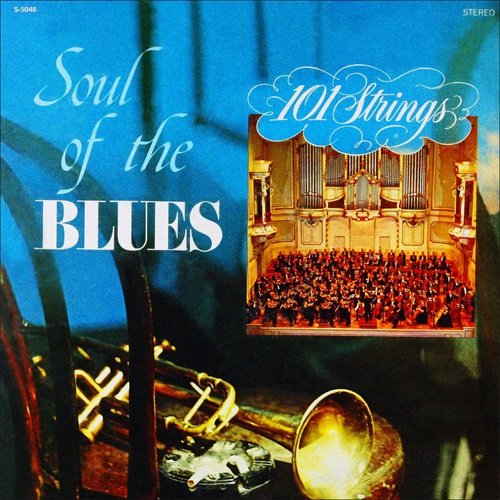
![Chet Baker Quartet - Chet Baker in Paris Vol. 3 (1955-56) [2024 SACD] Chet Baker Quartet - Chet Baker in Paris Vol. 3 (1955-56) [2024 SACD]](https://www.dibpic.com/uploads/posts/2026-01/1769756405_ucgu9076.jpg)
